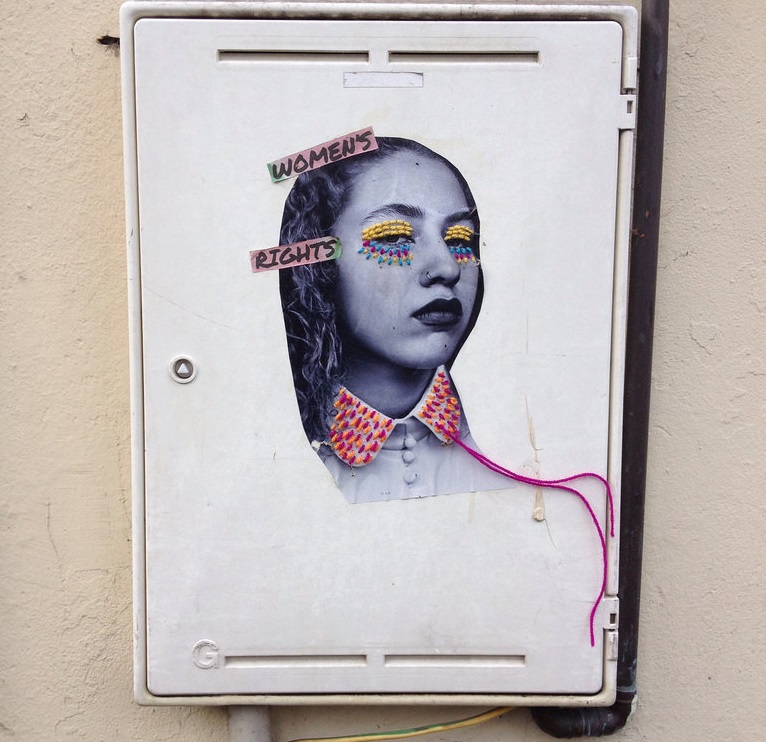
It’s 2016, a presidential election year in the USA.
We elected a black man in 2008. Eight years later, maybe we’ll elect a woman.
Elections make me think of values. The values of this country. Values I see elsewhere in the world. I’ve written about values in this column before.
Values make me think of justice. And justice—which feels so absent in this election chatter—makes me think of injustice.
NPQ regularly writes about justice and the implications and applications for the nonprofit sector. So, today I’m focusing on justice. And I’ll continue that focus for the next couple of columns.
Twelve years ago
In spring 2004, I was invited to give the commencement address at Lincoln School, an independent college preparatory school for girls established in 1884 in Providence, Rhode Island.
The invitation, extended by the class of 2004, said:
In our Lincoln community we are taught diligence, honesty, respect, and excellence. [We] invite you to serve as our commencement speaker because, through your efforts with the Women’s Fund of Rhode Island, we see in you the qualities of a Lincoln woman. We would be honored and touched if you would share with us your insight on women’s issue and education.
Today
Of course, I was proud back in 2004. I still am.
I shuffled through my files today to see what I’d said twelve years ago. I read my notes. And I was sad. I’m still sad. Why?
Because not that much change has actually happened.
Back in 2004, I spoke about seeing and telling the truth
“Since I was a child—when I look at the world and my own community, wherever I live—I see injustice. There is economic and social injustice. Educational and political injustice. There is racism and sexism and homophobia.
“I ask you to look at the world honestly. Look at your own community here in RI and wherever you go next. Look and see what is happening.
“I’m talking about seeing the need for change—the need to work for fairness and opportunity…the need to champion shared power and responsibility in all areas of your personal life and the lives of the people around you—economic, cultural, educational, social, and political fairness and opportunity.
“And why the need for change? Because the playing field is not level yet.
“There are too many people—in Rhode Island and in the U.S. and around the world—who are denied their basic human rights—who experience bias because they are women, or people of color, because of their level of affluence or education, because of their sexual orientation and more.”
I told stories that preceded 2004
Sign up for our free newsletters
Subscribe to NPQ's newsletters to have our top stories delivered directly to your inbox.
By signing up, you agree to our privacy policy and terms of use, and to receive messages from NPQ and our partners.
Story #1: Nancy
“A few years ago, my friend Nancy discovered that she was being paid significantly less as a development officer than a man in her nonprofit. Since the start of her job there, Nancy had received stellar performance reviews. She had the same level of accountability and work as the man.
“Nancy talked to her boss and he couldn’t explain why but he wouldn’t make a change. She filed a complaint and won a settlement.
“She got back pay for gender bias. But she left the organization because people disrespected her for being a troublemaker.
“Nancy spoke up for herself and spoke out for all women. And while she got the money she was owed—she was, finally, punished for speaking out.”
In 2016, women in the U.S. are still paid less than men for the same work, same qualifications, same experience and expertise.
Story #2: What boys think about girls
Back in 2004, standing in front of those graduating women, I shared research from Michael Kimmel, a masculinity expert who has worked with people around the country. He always asked the following question in his nationwide workshops with boys: “What does it mean to be a man?”
Thirteen answers remained constant during these workshops around the country. They are:
| Pressure | Don’t be a girl | Don’t cry | Don’t ask |
| Strong | Sex | Silent | |
| Independent | Confident | Don’t do it | |
| Bully | Denial of feelings | Power |
Think about what those statements meant back then—that for boys, being a man meant being a bully, being strong, having power, getting sex, and not being a girl.
That makes me sad for boys, not just girls. Remember, boys (and men, too), aren’t supposed to cry…and if you’re a man and staying home with your kids, it must be that you couldn’t get a good job.
It’s still the same today. Just take a look at the absolutely marvelous “Always #LikeAGirl.”
During my commencement address in 2004, I reported on research that’s now twenty-five years old from the Michigan Board of Education—a statewide survey of students’ perceptions of what it means to be male or female.
- Nearly 50 percent of the girls spoke of the advantages of being a boy.
- Only 7 percent of the boys saw advantages to being a girl.
- Nearly 20 percent of the boys gave extremely hostile, derogatory responses when thinking of being a girl.
- An alarming number of boys said that they would commit suicide if they suddenly awoke to find they were girls.
“Surely,” I said, “this is the most fundamental description of gender bias: that boys don’t want to be girls because girls are not powerful enough; because boys see girls as a disadvantaged group.”
Now it’s 2016—but I fear this is still so.
“I find this chilling,” I continued, “and it’s not the exception but rather the rule. This bias continues when boys and girls become adults.”
And keep in mind: Gender bias is displayed not by men only but by women, too. For example, in 2004, women complained that Dr. Judy Steinberg. Howard Dean’s wife, didn’t join him on the campaign trail. Instead, she chose to stay home and treat her patients.
I still see women—young and old—who demonstrate gender bias. (Shirley Chisholm talked about that, too.) Tell me, what are you hearing today—in 2016—on the streets, in your classrooms, at work?












